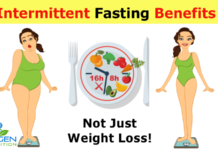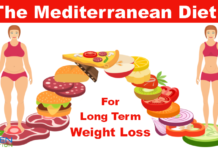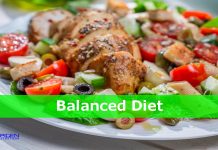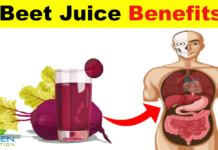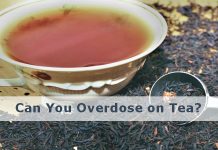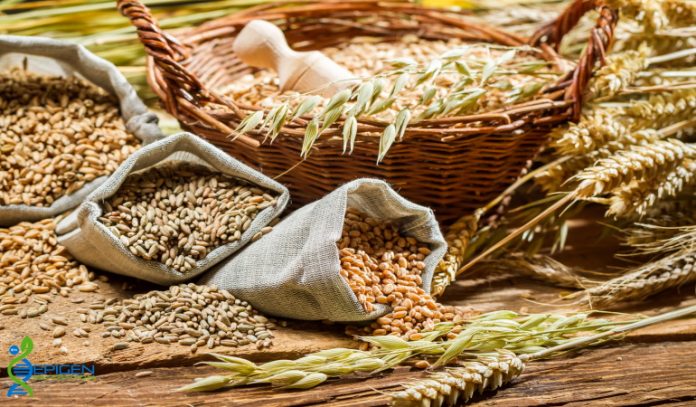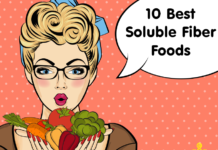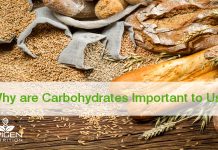If you are looking to follow a healthy eating diet plan you may have read that you should cut carbs out completely.
But wait a second, because that is wrong!
While some people say that they are not really essential, it is not recommended that you to totally cut them out altogether.
There are a few health organizations that recommend different levels of carbohydrates that you should include in a healthy diet and these range from 45% – 75%.
It is important to understand the difference between the types of carbohydrates that there are in order for you to avoid eating the really bad ones!
What are Carbohydrates?
In a sciencey sort of explanation, carbohydrates are hydrates of carbon of which there are 2 types; simple carbs and complex carbs.
The simple carbs include sugars; glucose, fructose, sucrose and refined sugar.
You should always try and avoid foods that contain a high level of simple carbs as they are not very nutritious and many people refer to them as ‘empty calories.’
Complex carbs like starch and dietary fiber are found in vegetables like corn, broccoli, beans, sweet potatoes and grains like wheat, rice, oats etc.
Complex carbs take a longer time to break down inside your body and also have less impact on blood sugars than “granulated sweets” and simple carbs.
So are Complex Carbs Good and Simple Carbs Bad?
Refined carbs are the forms of starches and sugars that don’t happen to be found in nature.
Originally they come from natural whole foods, but after they have gone through the refining process the vitamins, minerals and fiber are all stripped out.
Fruits have a lot more simple carbs in them, but they are good for us because of all of the vitamins, minerals, phytochemicals and anti-oxidants they contain!
So after reading that you are probably finding yourself a little confused!
Take a look at these examples below and hopefully they will help you to understand what foods you should pick that offer carbohydrates as well as proper nutrition.
Some of the Bad Carbs
• Sugar – Table sugar, or refined white sugar, is a disaccharide known as sucrose. You will get no nutritional value from sugar at all.
So if you have to have your sugar you should swap it for unrefined raw sugar or honey as you will get some nutrients from them.
Avoid sweeteners and foods like donuts, cupcakes etc as these have ridiculous amounts of sugar in them.
• Soda
• Desserts/Sweets
• Candy
• Potatoes
Good Carbs
Whole Grains
Try and eat breads and pastas that are made from whole grains rather than refined, as these have a lower Glycemic Index (GI) and will be digested at a slower pace which means you won’t get a spike in your blood sugar.
Always check the labels before you buy what you think might be made from whole grains as they can sometimes be deceiving!
Some manufacturers will add food colouring to foods in order to make them look the part when in fact they don’t contain any whole grains at all.
Best Whole Grains
• Whole wheat (can be purchased as flour for baking and bread making)
• Brown rice
• Wild Rice
• Whole grain pasta
• Whole-grain sorghum, barley (can be purchased as flour for baking and bread making)
• Buckwheat (can be purchased as flour for baking and bread making)
• Bulgur (can be purchased as flour for baking and bread making)
• Millet
Vegetables
Any sort of vegetable is good for you and worth eating.
Green leafy vegetables are thought to be better for you as they contain a high amount of dietary fiber. However, aim to eat all different kinds to improve your health.
High Fiber Vegetables
• Broccoli
• Brussels Sprouts
• Spinach
• Greens

Fruit
Try not to buy commercial fruit juices as the majority of these are packed full of added sugars which are no good for you.
If you have a juicer at home why not make your own smoothies, and don’t forget to make sure your fruit bowl is regularly stocked.
Your aim is to replace any sort of candy with a piece of fruit even if its dried.
High Fiber Fruits
• Raspberries – highest in fiber, but all berries are good.
• Apples
• Bananas
• Oranges
• Mango
• Persimmon
• Guava
• Canned pumpkin
Nuts and Legumes
We need beans and legumes for one, because of their protein content to help build strong muscles.
They are also full of fiber which will offset the carb impact.
Legumes and beans are very versatile and can be used in lots of family meals and another big benefit is they are affordable.
Green peas have an added benefit of them containing Leptin which is a chemical substance that tells your brain your stomach is full meaning that you won’t over eat.
Green peas are also packed full of nutrients including vitamin c and zinc which helps to improve your immune system and combat illnesses such as colds and flu.
Best Legumes
• Lentils
• Navy Beans
• Pinto Beans
• Kidney Beans
• Black Beans
Best Nuts
Nuts are high in fiber and naturally low in sugar carbs so these are a great thing to have around the house to snack on for a low carb impact.
Bear in mind though, if you are watching your waistline, most nuts are high in calories.
• Almonds
• Pistachios
• Peanuts
• Walnuts
• Pecans











